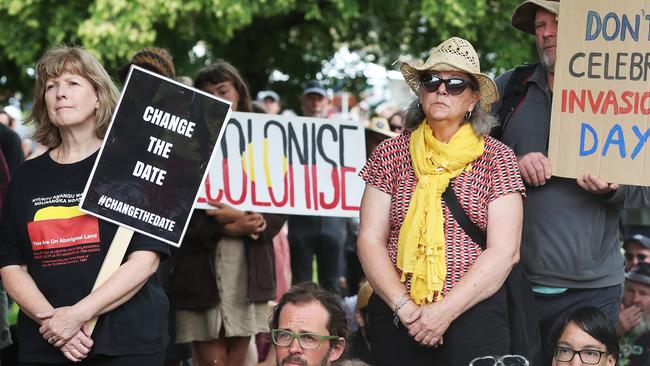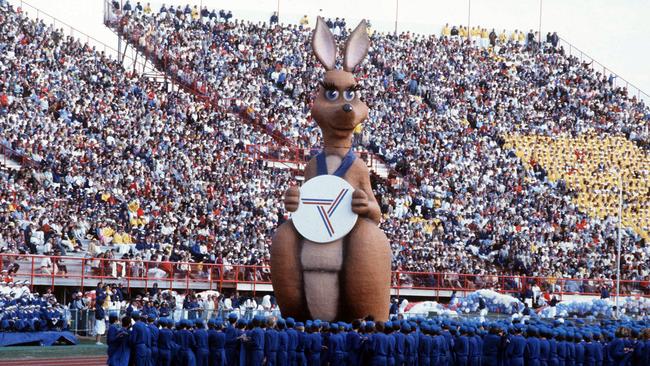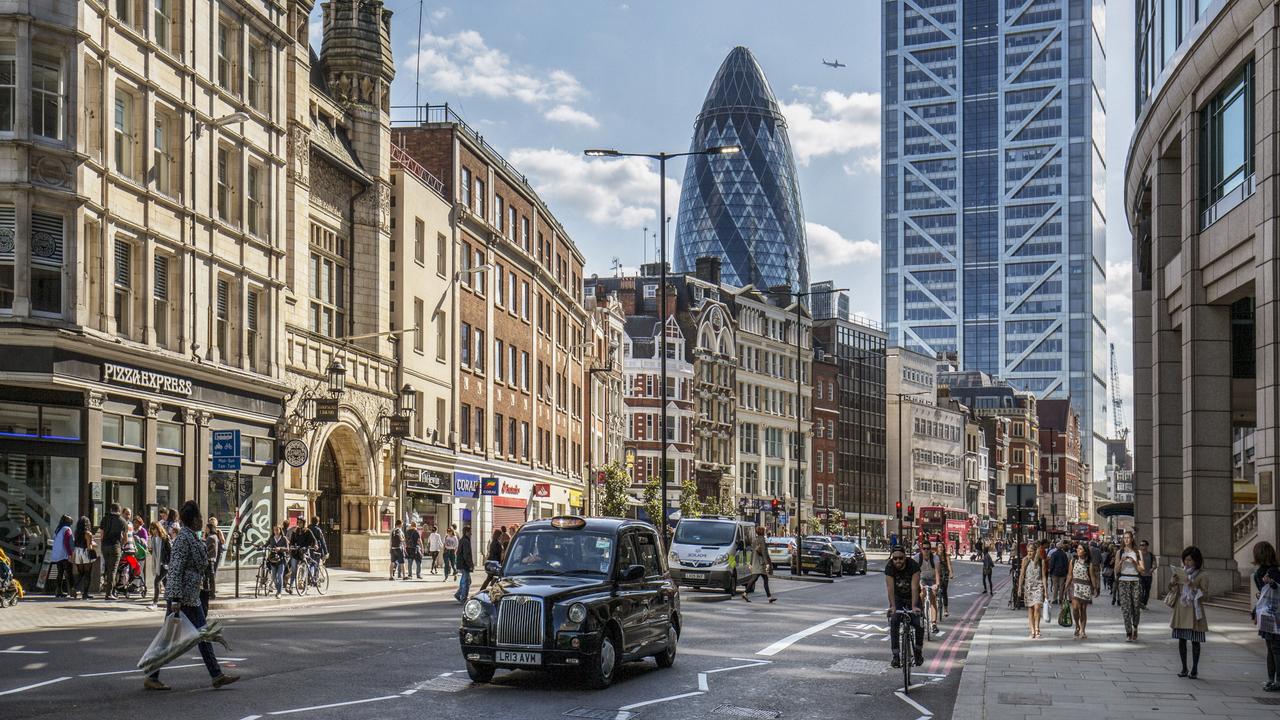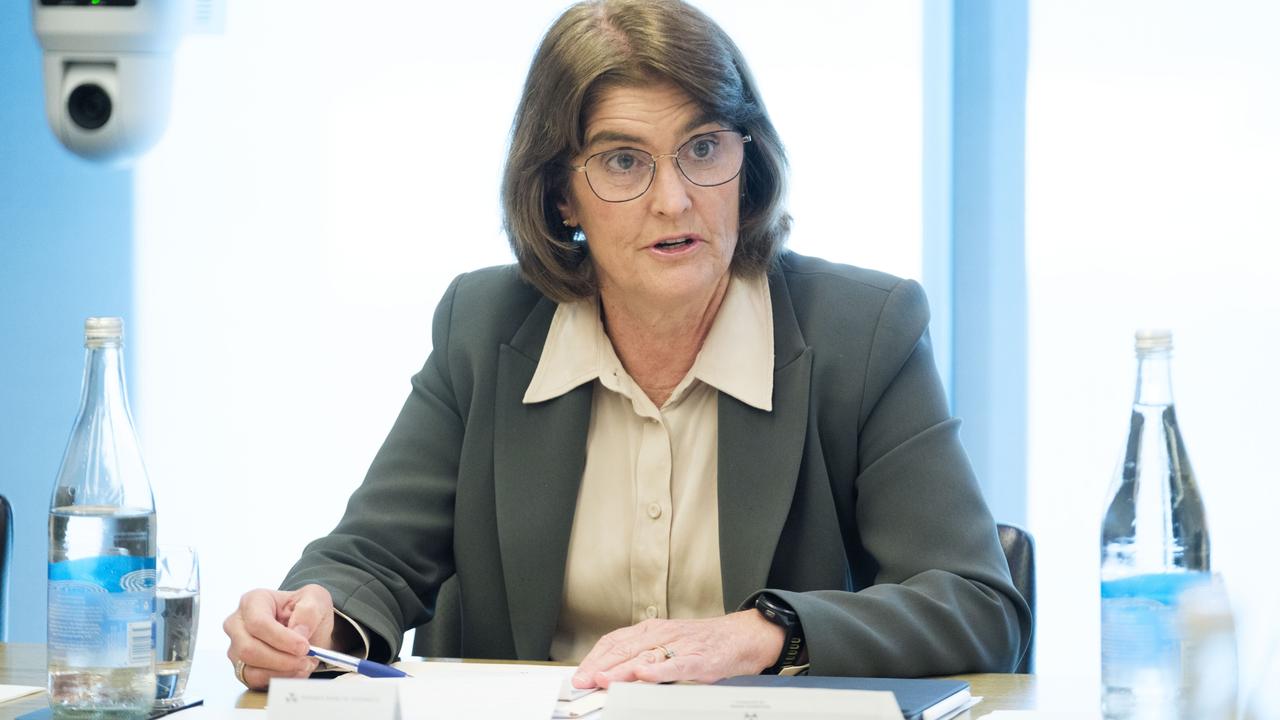
To reiterate, the English invasion of this continent led to catastrophic consequences for the Indigenous people.
While not directly taking part in the atrocities, the subsequent white arrivistes were complicit in theft and genocide. They should not be confused with ethnic migrants, whose passage here has incredibly enriched this country and ensured diversity.
Author and Man Booker Prize winner Richard Flanagan’s Australia Day lamentations began by telling us the devastating news that we had lost a national treasure. “For a long time I have not felt part of Australia, not felt Australian, not wanted to be known as Australian,” he wailed in the opening sentence of his Guardian column this week. Among the many things that distresses him about his native land is “Matilda”, the “embarrassing and ridiculous” kangaroo mascot that featured in Brisbane’s Commonwealth Games nearly 40 years ago.

Having got the most important things out of the way, Flanagan eventually addressed the issue of January 26. “There is no longer a serious debate about Australia Day,” he declared. “A national day the biggest public gatherings of which are in opposition to its existence is not deserving of the name.”
That is the error of equating noisiness with numbers. As the Sydney Morning Herald reported this week, an Ipsos poll of 1222 people found only 28 per cent wanted to shift the date of Australia Day, whilst 48 per cent were opposed. A quarter of those polled neither agreed nor disagreed.
Horrifyingly, at least for the likes of Flanagan, 82 per cent said they were proud to be Australian. Presumably that majority would reject his assertion we are “a meaner, more militarised, more racist and more arrogant country”, or that we have “become known internationally as small and nasty”.
What has become meaner and nastier is the debate about Australia Day. While many in the #changethedate movement undoubtedly have good intentions, there is a militant element which sees only nationalism and racism in commemorating the day. It is also convenient that activists – the far left and so-called progressives – have found their voice when a conservative federal government is in power. As with same sex marriage and children in detention, the campaigning for #changethedate was muted during the Rudd/Gillard years.
So what exactly are we achieving by these campaigns? Very little actually, aside from symbolism and divisiveness. Currently, Cricket Australia leads in the brave and stunning category following its announcement it would not acknowledge Australia Day. This is opportunistic PR.
I am often asked about leading with empathy.
— Dr Kirstin Ferguson (@kirstinferguson) January 25, 2021
On this day, of all days, having empathy means putting ourselves in the shoes of others and feeling their pain. It is truly listening and understanding that for many fellow Australians, this is a day of anguish and grief.
🖤💛â¤ï¸
As Andrew Webster the Sydney Morning Herald, noted “it’s equally angered some fans who probably couldn’t care less about when the nation is celebrated but are tired of being told how to think”. The spectacle of players standing barefoot in a circle and “taking a knee” – also known as kneeling – is self-indulgence and corporate wankery.
They are up there with lengthy and fulsome acknowledgments of country, declarations that you will henceforth be an “ally”, amending your Twitter bio to reflect you live on “stolen” land, saying you will “educate” yourself about Indigenous issues, adopting the imported terminology of “First Nations” to describe what was once known as tribes, and accepting without question every claim, no matter how fantastic, in Bruce Pascoe’s “Dark Emu”. And above all, vowing in solidarity on social media never to celebrate Australia Day until government moves the date.
— Essendon FC (@essendonfc) January 25, 2021
These gestures are superficial and platitudinous. They are motivated primarily by a need to be seen on the right side of history, and those who make them ignore an inconvenient fact. If simply moving the date would improve the lot of Indigenous people, most Australians would not oppose it.
Proponents may argue that racism, apathy and ignorance are the blockers, but scepticism about the effectiveness of symbolic changes and the motivations of those who demand them is well-founded. Speaking of which, how good is it that Australia is now one and free?
I often hear phrases like "this country struggles with our history". This is offered as an explantion for the suffering of Aboriginal people today. I personally do not know any person who is struggling with Australia's history.
— Anthony Dillon (@Anthonywodillon) January 25, 2021
Dull UN targets Australia
Admittedly the UN’s 37th Session of Universal Periodic Review sounds like a dull name, but to be a member of this group you would have to possess a sense of humour and be able to keep a straight face.
Its current priority is taking Australia to task for human rights violations.
This may sound like a cushy role, but the job is not without hardship. For example, in delivering their reports this month, delegates were supposed to meet at the Human Rights Council, in Geneva, Switzerland. Sadly, due to COVID-19 restrictions, most could not attend this august gathering in person.
The enormity of this cannot be overemphasised. No first-class flight, no being chauffeured by limousine from the airport, no staying at luxury hotels, no sumptuous banquets, no hobnobbing it with fellow luminaries, and no organised wine or sightseeing tours. Delegates were instead forced to appear remotely.
Judging by the mask-clad president of the Human Rights Council, Nazhat Shameem Khan of Fiji, it seemed especially sombre as she presided in a vast assembly hall in which two or so people were visible.
“I apologise to all delegations for the noise in the background; there is maintenance work going on,” she said. “The secretariat has reached out to the maintenance people to try and stop the drilling”. But on it continued. An apt demonstration of the UN’s effectiveness or lack thereof, one might observe. Maybe in reaching out she should have used plain language.
For the next three hours, countries such as Russia, China, Iran and Venezuela delivered their blistering appraisals of our numerous failings.
Their objective feedback is just one of the many benefits we get from contributing over $US61 million to the UN in 2019 alone. North Korean ambassador Han Tae Son called on Australia to “end deep-rooted racism, racial discrimination and xenophobia on the basis of ethnic, racial, cultural or religious background in the public sphere.”
I am not sure North Korea is in the best position to criticise Australia about anything, with the exception of our obesity rates. Disappointingly, none of the delegates acknowledged the recent case of McIver’s Ladies Baths, a women-only swimming pool in Sydney that had refused to admit trans-women unless they had undergone gender reassignment surgery. Thanks to a campaign by social media users this month, Randwick Council has addressed this human rights travesty. Women with penises can now swim in a safe space away from the eyes of leering men. It was remiss of the Human Rights Council not to applaud this advancement.
Finally, a big shout out to Estonia, which congratulated us for ratifying the “Optional Protocol of the Convention against Torture”. If doing so means we never again have to sit through an excruciating 17-minute speech by former independent Rob Oakeshott, I am all for it.
More Coverage
See how we’re seen https://t.co/B7yDuj4ezD
— Julian Burnside (@JulianBurnside) January 22, 2021








The #changetheday activists are right: too much of Australia Day is about white people, specifically white people who incessantly tweet about how upset they are feeling on behalf of the Indigenous population. Defending the wretched — irrespective of whether one was asked to — is a sacred but exhausting task, and it is important to remind acquaintances of the latter.